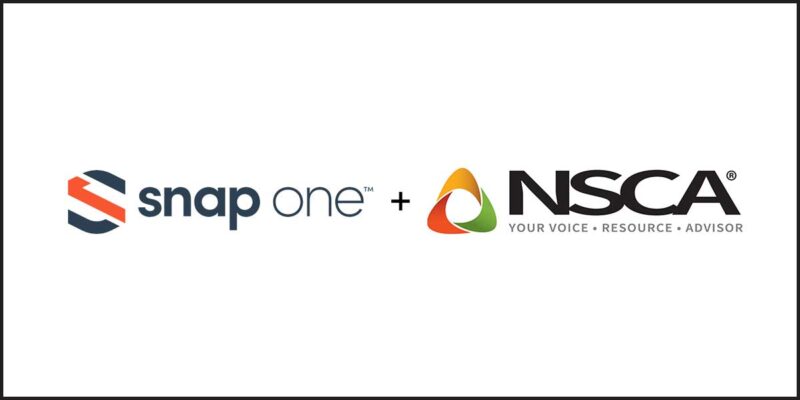Reaching out to Generation Y Within Our Channel
By Chuck Wilson
Executive Director, NSCA
Effective strategies for successfully working with young people in systems integration
There is wide disagreement regarding the exact birth dates that define Generation Y. In the broadest sense, we could safely say they include the more than 70 million Americans born between 1977 and 2002. Also known as echo boomers or millennials, this age group is moving into the workforce at an escalating pace, bringing new attitudes and expectations. All of this comes at a time of major demographic change, as companies around the country grapple with the needs of an aging workforce. Having already developed a reputation for changing jobs and career paths nearly as fast as college students change majors, this latest crop of job entrants present a source of frustration for employers, who struggle to both recruit and retain good, talented help from among its ranks.
Employers within our own industry are no different than any other in this regard. That’s why the NSCA Education Foundation is focused on reaching out to the next generation. As our current industry workforce ages, it’s imperative that we welcome up-and-comers to the commercial electronics profession. By providing opportunities, education and training, we hope to ensure a strong industry for years to come. Therefore, I’d like to use this column to address effective strategies to pave a path toward better understanding as well as mutually rewarding — and profitable — experiences within the workplace for all generations.
What’s the best way to characterize those in the workforce under 30? Beyond the fact that they’re smart, tech-savvy, prone to wearing flip-flops to the office and listening to iPods at their desk, they want to work, but they don’t want work to take over their lives. The sons and daughters of baby boomers, Gen Y has been pampered, nurtured and preprogrammed as children with a myriad of activities. They believe in their own worth, and are less likely to respond favorably to the traditional structures of command still widely found at most companies.
Whether fair or not, several critics point out some Gen Y workers are surprised they have to work for their money; they expect to immediately occupy the corner office with a view. Their parents, after all, groomed them to believe that anything is possible with self-esteem. Gen Y’ers were shuttled off to endless rounds of karate classes, soccer games, and play dates. They were overscheduled and overworked from the get-go, and perhaps deprived of social skills along the way.
Gen Y is well-traveled with many enriching experiences under their belts. As a result, they have high expectations for themselves as well as for their employers. They don’t expect to stay in one job for too long. Growing up amidst corporate scandals like Enron, concepts like employee loyalty may completely elude them. Just as they may not linger at any one job too long; they don’t just focus on specific assignments. Adept at multitasking, they can talk on a cell phone while responding to emails, surfing the Web and preparing that report due at 5 p.m.
Gen Y has witnessed downsizing, layoffs and the bursting dot.com bubble, so oftentimes they arrive at the workplace with a keen eye toward financial matters. Unlike many workaholic baby boomers that give top priority to careers, Gen Y is just as interested in having their jobs accommodate personal needs like family and lifestyle.
Consequently, there is higher value placed upon workplace opportunities offering self-fulfillment among the Gen Y demographic; tapping into this mindset is a good place for employers to begin developing relationships that can be lasting and productive. Providing perks like flexible hours, telecommuting alternatives and the option of working part-time after having children are just a few ways to reach out to this age group and earn a little loyalty in return.
Given Gen Y’s high expectations, it’s critical to maintain a fair and direct managerial style and show concern for professional development. This is a generation that seeks out challenging situations, and views its employers as sources of opportunity. This group prefers goal-oriented mentoring, along with initiatives that promote a work environment that rewards creativity and independent thinking.
Recognition is another consideration for Gen Y. For all their lives, this generation has received constant feedback from parents, teachers and coaches. They expect the same thing from their bosses, and may even feel resentment if they don’t get it. The annual review just isn’t enough anymore; they expect ongoing, open communication and dialogue.
When it comes to communication, it’s useful to note that Gen Y workers may feel more comfortable solving problems virtually, as well as communicating in other more familiar ways. While baby boomers may prefer a phone call during sensitive or important situations, Gen Y’ers may prefer different forms of contact. Boosting flexibility within business communications is vital and can go a long way to bridging the generational divide in the workplace.
According to recent research, Gen Y is rapidly becoming the fastest-growing segment of the workforce, having increased during the last seven years to encompass more than 32 million workers. As this demographic transition continues, some conflict is inevitable. It’s not uncommon today, just as in the past, for older workers to be dismissive of the abilities of younger employees, and vice versa. All of us, however, are locked into the same battles. We must remember that young workers ultimately hold the keys to a better future. With positive leadership and mentoring, Gen Y will make the world a better place.
——————————
NSCA is the leading not-for-profit association representing the commercial electronic systems industry. NSCA is dedicated to serving contractor members and all channel stakeholders through education, advocacy, outreach and member services. We remain committed to our current and upcoming generation of workers.





